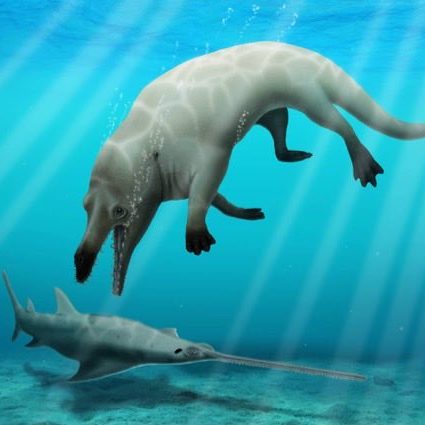
Fossils of ancient four-legged whale discovered in Egypt
Recommended for Middle Grades
Recently, palaeontologists have discovered fossils of an ancient four-legged whale in Egypt. The fossils are about 43 million years old.
The ancient fossil was discovered in the Western Desert in Egypt. And experts say that this area was once covered with water. The skull of the fossil resembles an Egyptian jackal-headed god called Anubis. He is also known as the Egyptian god of death. So, scientists have named the four-legged whale Phiomicetus anubis after Anubis.
What do we know about this four-legged whale?
They were about three metres long and weighed around 600kg. The researchers say that they were predators (hunters) in nature. They were semi-aquatic and they could move between land and water. Moreover, the fossils reveal that this four-legged whale is an important step in early whale evolution.
When and where did whales first evolve?
The first whale species are said to have evolved in South Asia around 50 million years ago.
Are you interested in learning about fossils? Fossils are parts of an animal or plant that lived thousands or millions of years ago which has turned into rock. They include bones, shells, exoskeletons, objects preserved in amber, hair, and even oil and coal. The study of fossils is called palaeontology. Studying fossils helps us understand more about life in ancient times and its connection to our world today. Keep reading Curious Times to know what scientists are discovering about Earth’s past.
There are so many interesting and exciting things happening in the world today. To keep yourself updated do not miss out on reading Curious Times – a news website for children. We engage and educate kids through news, information and trivia. We are also delighted to publish what children send to us in My Expressions. Reach out to us on WhatsApp, Instagram, Facebook. Youtube, Twitter, Linked In, Or write to us at hello@curioustimes.in.
0 (Please login to give a Curious Clap to your friend.)
